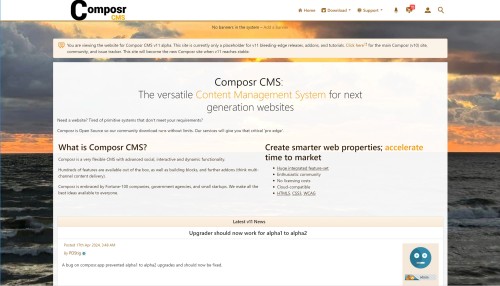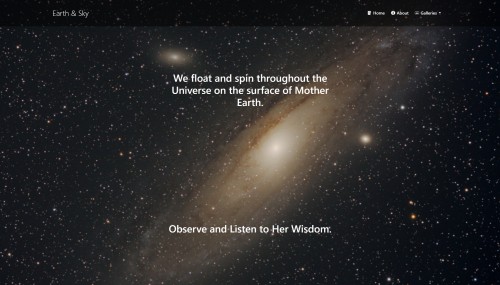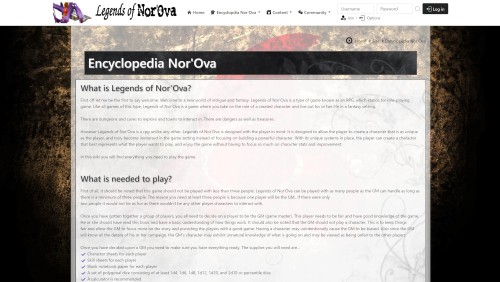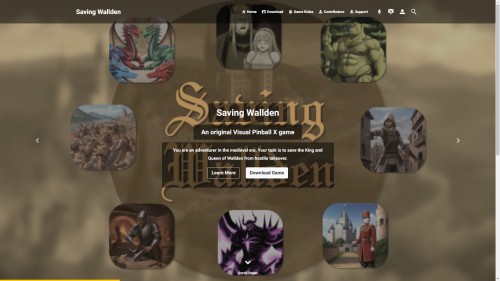Featured Sites: A-Z Index
H
Newest 10 Entries
| Question | How can I improve my search results? |
|---|---|
| Answer | Here are some tips for improving search results:
|
| Question | What is the fast custom index and why should I use it? |
|---|---|
| Answer | The fast custom index is Composr's own search engine, designed to be faster and more efficient than MySQL full-text search, especially for large websites and filtered searches. Benefits of the fast custom index:
Downsides of the fast custom index:
|
| Question | Can I filter my search results? |
|---|---|
| Answer | Yes, you can filter your search results by:
|
| Question | What is the difference between natural and boolean searching? |
|---|---|
| Answer | Natural search is a more relaxed approach where you type in your search terms and Composr tries to find the most relevant results, even if they don't contain all the words. It's like a Google search. Boolean search requires more precision and uses operators like "+", "-", and quotation marks to define exactly what you're looking for. For example, searching for "+car -maintenance" will only return results that contain the word "car" but not "maintenance". |
| Question | How do I search my Composr website? |
|---|---|
| Answer | There are a few ways to search your Composr website:
|
| Question | How do I mark correct answers in a quiz? |
|---|---|
| Answer | For questions with predefined answers, you can mark correct answers by adding [*] after the answer. If no answer is marked correct, the question will require manual marking. You can also use the [UNMARKED] tag after a question to exclude it from scoring. |
| Question | What is the input syntax for quiz questions? |
|---|---|
| Answer | Quiz questions are inputted in blocks, separated by blank lines. The first line is the question, followed by potential answers on subsequent lines. Different question types are indicated by tags after the question, such as [MULTIPLECHOICE], [MULTIMULTIPLE], [LONG], [SHORT], and [SHORT_STRICT]. |
| Question | Can I create complex, multi-screen quiz interfaces in Composr? |
|---|---|
| Answer | While Composr's built-in quiz system is excellent for standard formats, creating intricate multi-screen quizzes might require custom development using Composr's decision tree framework or other programming tools. This allows for highly customized quiz structures and advanced branching logic. |
| Question | How can I analyze quiz results effectively? |
|---|---|
| Answer | Composr enables you to export quiz results to a spreadsheet file, facilitating in-depth data analysis. This is especially useful for manually marked questions, identifying competition winners, and processing data for marketing or research purposes. |
| Question | What are Quiz Sets and how can I use them? |
|---|---|
| Answer | Quiz Sets are a helpful organizational feature in Composr. By prefixing quiz names with "Example: ", you can group related quizzes together. This allows for combined scoring and percentage calculations, particularly beneficial for multi-part questionnaires or tests. |
Top 10 Entries
| Question | Can I use the calendar as a personal diary and keep my entries private? |
|---|---|
| Answer | Yes. When adding an event to the calendar, you can choose to make it public or private. Private events are generally used when someone wants to use the calendar system as a diary. |
| Question | How can I set up reminders for events? |
|---|---|
| Answer | When adding or editing an event, you can enable reminders for yourself and specific user groups. You can also choose how much notice you want for each reminder. Members can subscribe for reminders on an individual event screen. They can also personalize their reminder settings, including removing reminders or having multiple reminders at different times. Members can also subscribe for notifications to specific event types to be notified whenever events under those types are scheduled. |
| Question | How can I schedule Commandr commands to run automatically? |
|---|---|
| Answer | To schedule commands, create an event with the "System command" event type. This option needs to be enabled in the configuration first. In the event details, you can specify either a URL for Composr to call or a snippet of Commandr code to execute. Be sure to disable the WYSIWYG editor for this type of event. You'll also need to have the system scheduler configured for the commands to run automatically. |
| Question | Can I add external feeds to the calendar? |
|---|---|
| Answer | Yes, you can add RSS or Atom feeds to your calendar. This lets you view time-based information from external sources alongside your calendar events. |
| Question | What do I do if a recurring event needs to be changed or skipped? |
|---|---|
| Answer | Composr has a "fixing an event" feature to handle changes to recurring events. This is useful if an event needs to be cancelled or rescheduled. You edit the event as if it were a new, standalone event and choose the "Edit with fixing past recurrences" option. This separates the past occurrences from the modified event, ensuring future recurrences reflect the changes. |
| Question | What is the "recurrence pattern" and how does it work? |
|---|---|
| Answer | The recurrence pattern is a powerful tool that defines how often an event repeats. While it might seem complex at first, it provides a lot of flexibility. Think of it as a binary code where each digit represents a time period (like a day or week). A "1" indicates the event occurs, and a "0" means it doesn't. This lets you create complex schedules like "every weekday" (daily with pattern 1111100 if it starts on a Monday) or "every other Tuesday" (weekly on Tuesday with the pattern 10). |
| Question | What are the different views available in the calendar? |
|---|---|
| Answer | The calendar has five views:
You can easily navigate between these views to get different levels of detail and focus on specific periods or events. |
| Question | How do I add events to the calendar? |
|---|---|
| Answer | You can add events in several ways:
Deleting events can be done at the bottom of the event's edit form. You have options for recurring events, such as editing/deleting the specific occurrence, editing/deleting future ones, or all of them. |
| Question | How do I categorize events? |
|---|---|
| Answer | You categorize events using "Event types". Composr provides default types like "Anniversary", "Appointment", "Birthday", "General", "Public Holiday", "Task", "Vacation", and the special "System command" for executing Commandr commands. You can also add your own custom event types to suit your specific needs, such as "Appraisal Session" for a business website. |
| Question | What is an "event" in the Composr calendar system? |
|---|---|
| Answer | An event is any entry in the calendar. Importantly, an event isn't limited to a single point or range in time. Events can recur based on a schedule you define. This makes them very flexible – they can represent anything from one-time appointments to recurring birthdays or even weekly team practices. |







